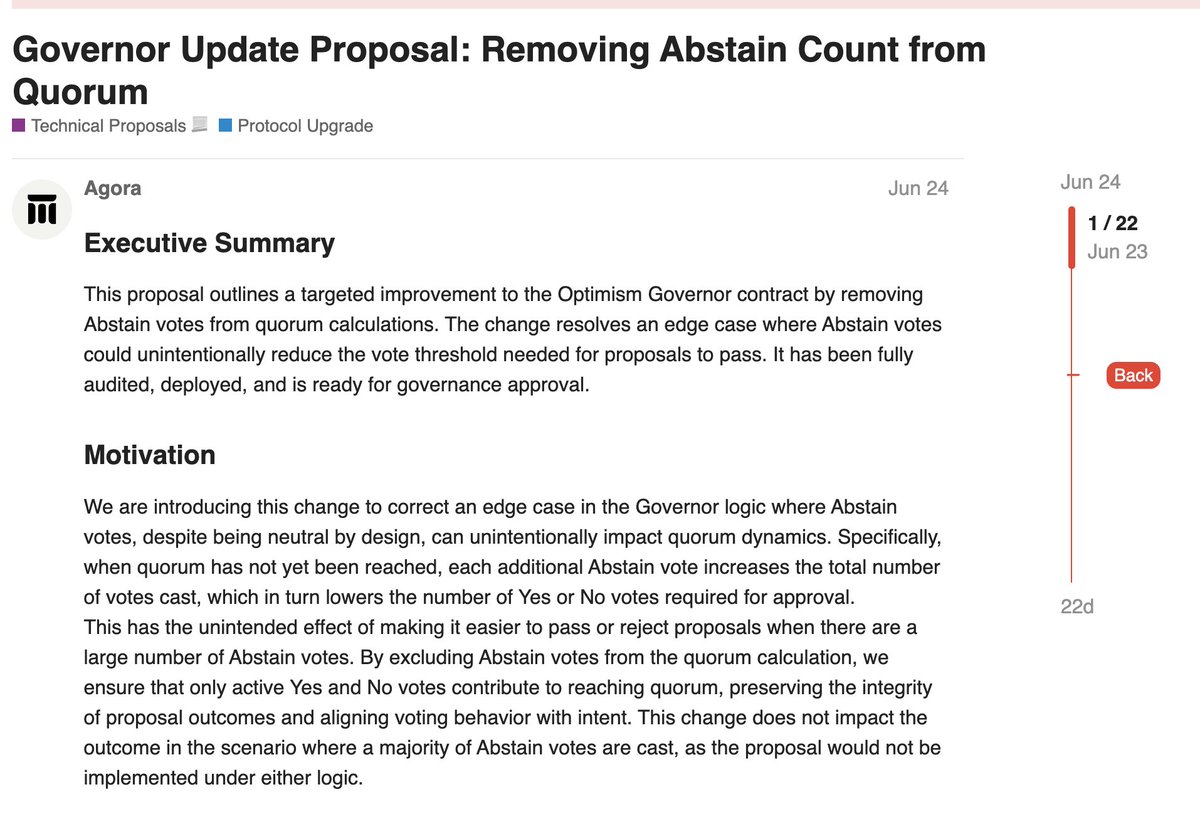Is Decentralized Governance Still Valid?
The influx of institutional capital, increased utility of stablecoins, and the emergence of innovative marketing platforms like @KaitoAI have all provided strong momentum for an optimistic outlook on the future of crypto. However, in contrast to these developments, support for decentralized governance seems to be gradually waning.
This shift is perhaps most evident in the case of @OptimismGov, which has long been regarded as one of the most advanced governance models in crypto.
Optimism currently dominates the rollup framework market, holding 50.9% of the market share by TVL and 49.1% by transaction volume. These impressive numbers are likely the result of its strong brand identity under the “Superchain” initiative and its well-structured governance system. Yet recently, concerns have emerged within the Optimism community that governance participants are being increasingly sidelined and underappreciated.
This sentiment was addressed quite candidly by Optimism co-founder Jing during the Season 8 AMA. He explained that with recent government changes reducing legal uncertainties, the project has been scaling back its governance efforts.
In June, a governance proposal was introduced via Agora to exclude abstain votes from quorum calculations. The proposal sparked intense debate but was ultimately rejected. Had it passed, it could have significantly altered decision-making dynamics. There's a big difference between accepting neutrality and treating it as silence.
From a business standpoint, streamlining governance to enable faster decision-making may seem efficient. However, public blockchains like @ethereum function more like public goods—not just in terms of access, but also in how they’re run, with contributions from a broad range of stakeholders. In that sense, they’re more like shared property. Listening to diverse voices is not just desirable; it’s essential. Removing abstain votes could be interpreted as disregarding a portion of those voices.
Of course, a highly active governance doesn’t automatically lead to a successful project. Speed and decisiveness often provide a strong advantage in competitive markets. Still, maintaining a decentralized and open deliberation process is vital. Especially now—with institutional acceptance of crypto reaching new heights—it may be time to seriously reflect on the value of decentralized governance.
Show original
1.64K
7
The content on this page is provided by third parties. Unless otherwise stated, OKX is not the author of the cited article(s) and does not claim any copyright in the materials. The content is provided for informational purposes only and does not represent the views of OKX. It is not intended to be an endorsement of any kind and should not be considered investment advice or a solicitation to buy or sell digital assets. To the extent generative AI is utilized to provide summaries or other information, such AI generated content may be inaccurate or inconsistent. Please read the linked article for more details and information. OKX is not responsible for content hosted on third party sites. Digital asset holdings, including stablecoins and NFTs, involve a high degree of risk and can fluctuate greatly. You should carefully consider whether trading or holding digital assets is suitable for you in light of your financial condition.

